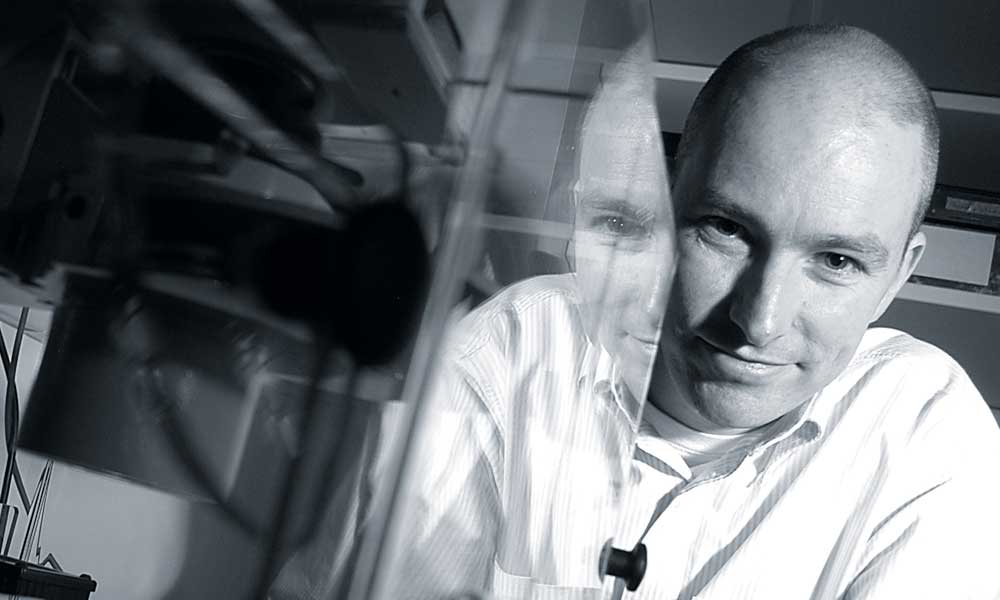Personalised medicine could revolutionise how we're treated for illnesses in the future. What does this mean for how we treat cancer, a disease that affects so many?
No two of us are the same. We may look remarkably like our parents, or make the same lifestyle choices as our friends. But ultimately, we're individuals. We want to be treated as such.
Cancer treats us as individuals. Our risk of developing many types of the disease is written into our DNA. Each cancer is unique in how it develops and grows, making it difficult to predict which treatment will work for which patient.
Personalised, or precision, medicine is all about treating the individual. At The University of Manchester, scientists are busy pioneering new approaches to make this a reality.
They're developing liquid biopsies to better identify cancer's biomarkers without the need for surgery. They're building a bank of living cancer tissue, and taking grafts from patients' tumours to run real-time experiments in the lab. Using modern DNA sequencing technologies, they're revealing cancer's weak spots.
Working with partners such as Cancer Research UK and The Christie NHS Foundation Trust, our researchers are already improving the lives of people with cancer.
Here, two scientists tackling different cancer challenges explain what personalised medicine means to them.
Accelerating drug development
Dr Matthew Krebs is a Clinical Senior Lecturer in Experimental Cancer Medicine and Honorary Consultant in Medical Oncology. He's based at The Christie, testing and developing new cancer medicines in phase I clinical trials.

There are hundreds of new targeted drugs in development. Our challenge is to match the right drugs to the right patients, based on their molecular profile – in other words, the genetic characteristics of their tumour.
Traditionally, in a phase I trial, we're looking to determine the side-effects of new drugs and the right doses to use. But we're now also able to look, at this very early stage, at whether a drug benefits patients.
Our challenge is to match the right drugs to the right patients
We've seen remarkable examples in recent years of phase I trials where the biomarker is known, the drug is highly specific and effective, and efficacy has been borne out early on. Fast-track approvals are now a reality for the most efficacious drugs.
In my work, we're now routinely performing molecular profiling for our patients to look at a series of genes within the cancer that, if faulty, we could treat with an experimental medicine. Our ambition is to bring forward molecular profiling to all patients with cancer at the earlier stages of their disease to provide targeted therapies much sooner.
Softening chemotherapy's impact
Professor Stephen Taylor is our Leech Professor of Pharmacology, based in our Institute of Cancer Sciences.

At the moment everybody gets the same drugs in chemotherapy. Because some won't respond, they'll be getting that additional toxicity for no benefit.
If all we could do was identify those patients who won't respond, and recommend that they do not take these drugs, they would be spared that unnecessary toxicity. That in itself would be a big bonus for patients.
Because some won't respond, they'll be getting that additional toxicity for no benefit.
In my lab, we're interested in a class of chemotherapy agents that are used extensively to treat breast, ovarian and prostate cancer. Some tumours will be killed by these drugs, others won't. Some respond well initially but then develop resistance. In addition, these drugs have side-effects that limit how effectively they can be used.
If we can better understand how these drugs kill tumour cells, then hopefully we can do a better job of identifying which patients to treat and which not to treat.
That's really the goal of personalised medicine – understanding the individual and how to treat them.
The future
Personalised medicine is a huge area of potential for research into genetic diseases, not least cancer.
With links to charities and to one of Europe's largest cancer centres – The Christie – the University is well placed to continue at the forefront of this research. And with Greater Manchester taking on responsibility for its own health care budget, the University will be at the heart of innovative work that will benefit the region in personalised medicine, clinical trials and health data systems.
Part of our vision to accelerate 'made-to-measure' treatments for patients is the creation of a new research facility, the Centre for Cancer Biomarkers. This new building, which is receiving significant funding from philanthropists who share this vision, will act as a global hub for the progress of biomarker blood tests that will direct the individual treatment plans of the future.
Our scientists want personalised medicine to be everybody's medicine.
Cancer is one of our research beacons – read more at www.manchester.ac.uk/beacons and find out more about the Centre for Cancer Biomarkers at www.cancerbiomarkers.manchester.ac.uk.
